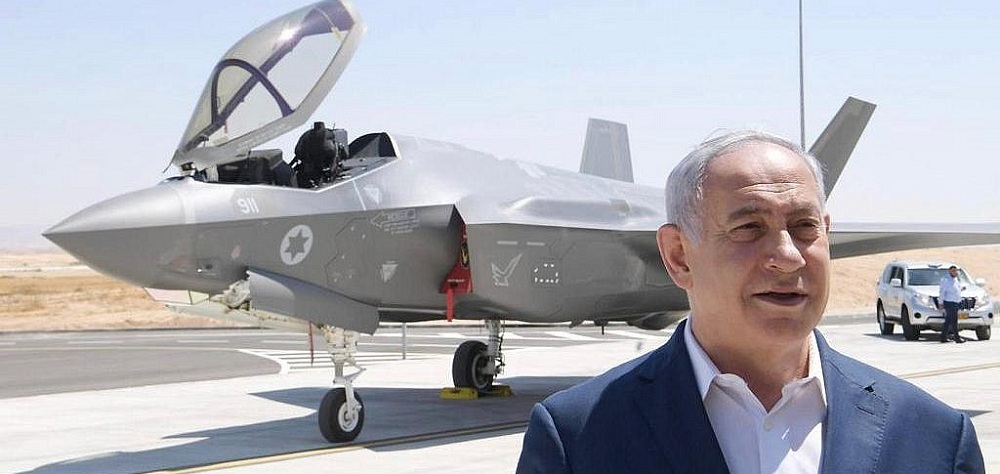Alwaght- A couple of days after the controversial UAE-Israel normalization deal, a US plan to sell modern F-35 fighter jets to the Arab sheikhdom is making news waves internationally.
Trump last week said that the sales plan, which will also include advanced drones, was “under review” and “they’ve definitely got the money to pay for it.”
The Israelis did not like the remarks, however, as the Israeli foreign ministry released a statement of objection. The Israeli Prime Minister Benjamin Netanyahu also said that Tel Aviv opposes any sales of F-35 jets to Abu Dhabi. Tel Aviv's objection has immersed the deal in a state of ambiguity.
Trump goals behind F-35 sales to UAE
Trump’s driver for selling the advanced warplanes is inevitably financial to strengthen the US economy amid critical conditions the country's industries are experiencing. Trump knows that selling further arms can help with restarting the US economy.
Since his assumption of office, Trump had arms sales to allies top on his agenda. His first foreign destination as a president was Saudi Arabia and other Persian Gulf Arab states that concluded in a legendary $100 billion arms delivery agreement. Now the coronavirus outbreak has taken its toll on the US economy by recording an unprecedented recession, with the number of unemployed people touching 42 million people, 13.3 percent. Trump unquestionably needs such deals to win the presidential election, set for November 3.
The second driver for Trump’s decision to sell the state-of-the-art jets is the need to incentivize the Emiratis to go deeper into normalization with the Israeli regime. So far, Washington has delivered F-35s only to its strategic allies and this can ring the alarm bells to Qatar and Saudi Arabia that host American military bases and have security pacts with the US. Saudi Arabia and Qatar have so far been conservative on the Emirati-Israeli normalization but the White House has asked them to openly and definitely support the accord.
And the third driver for Trump is growing tensions with Turkey. The UAE is in a regional camp opposite to the Turkish-led Muslim Brotherhood camp. Promoting the Emirati military capabilities will certainly impact Turkey-UAE competition in Libya and the Mediterranean Sea. Last year, the US canceled scheduled delivery of F-35s to Turkey as Ankara pushed forward with its deal with Russia to procure S-400 air defenses.
The myth of Israeli-American difference
Meanwhile, an attention-grabbing issue is Tel Aviv's objection to the key regional ally to Washington to the deal with Abu Dhabi. But why is the Israeli opposition should not be taken seriously? And why does Trump look firmly standing on his intention to sell the arms to the Emiratis?
Clearly, one of the main forces behind the cancellation of F-35 delivery to Turkey last year was the Israeli regime. This leads to the conclusion that Israeli security interests play a decisive role in the American West Asia policies. However, there is a distinction in the nature of Israeli objection to the strategic warplane sales to UAE and Turkey. The Israelis and mainly Netanyahu view Turkey as a rival and potential security threat for Tel Aviv even without President Recep Tayyip Erdogan. This view has been largely strengthened in recent years with the increase of geopolitical competition of Ankara and Tel Aviv in the Mediterranean and the Turkish push to take a role in the Palestinian cause developments.
But when it comes to the UAE, Netanyahu issued a symbolic objection statement because of the need to maintain the Israeli strategic superiority, especially air and nuclear superiority, in the region. The statement is symbolic because its destructive effects on the normalization process are clear. In fact, the Israelis could express their objection unofficially without giving it publicity.
What is important concerning this case is that a CNN report on Saturday disclosed Trump advisor and son-in-law Jared Kushner’s secret push to finalize a deal to supply the UAE with advanced weaponry including F-35s. The effort, the report added, has given perturbation to the Congress expert agencies and committees charged with ratifying such contracts. Kushner is supporting the administration's discussions with the UAE about the potential advanced arms sale, which have been led by the NSC Senior Director for the Middle East, Miguel Correa, CNN added. Given these efforts by Kushner and his strong relations to the Israeli lobbies in the US, it can be concluded that the Israeli objection is not much serious.
But Trump, motivated by his “America first” policy and also to rejuvenate the American economy just three months ahead of the election, has the potential to ignore the Israeli worries.
From another aspect, just unlike Turkey that holds a foreign policy more independent than that of Persian Gulf monarchies, the UAE in the foreign policy follows the American-drawn lines. At the same time, the Americans actively control the US-supplied weapons and the military bases in the UAE.



























